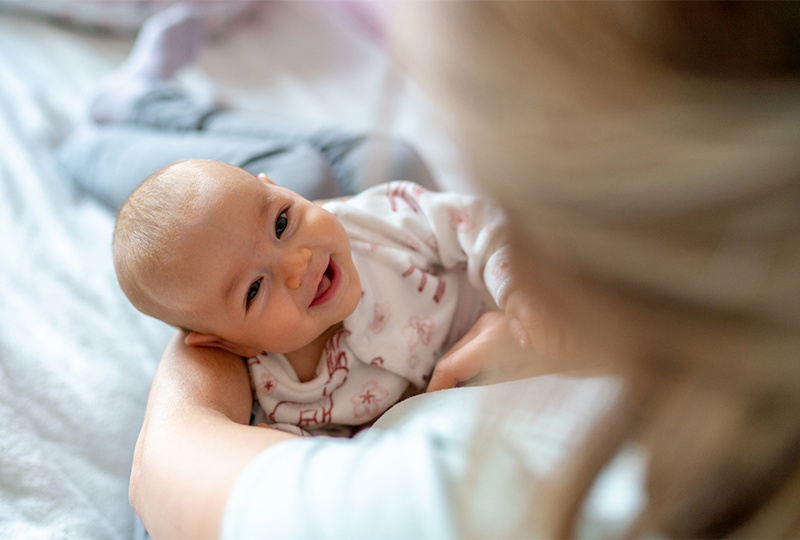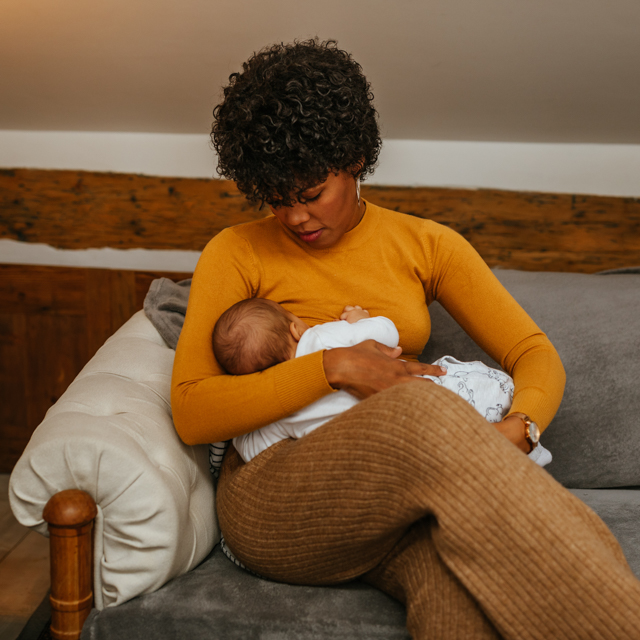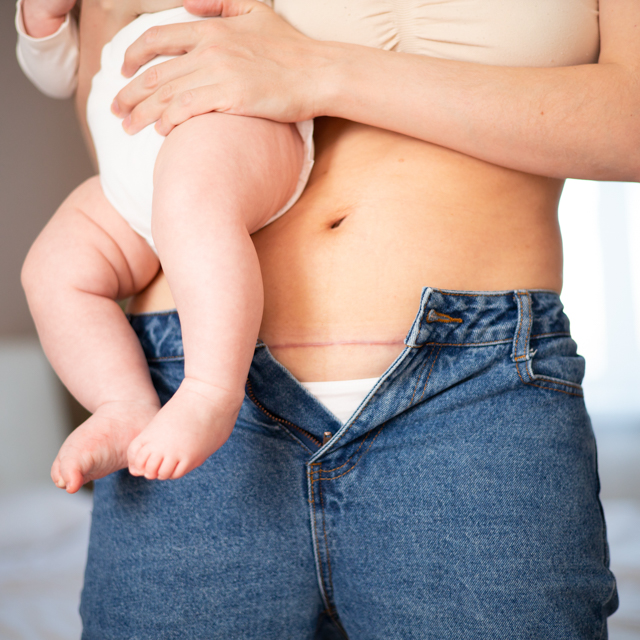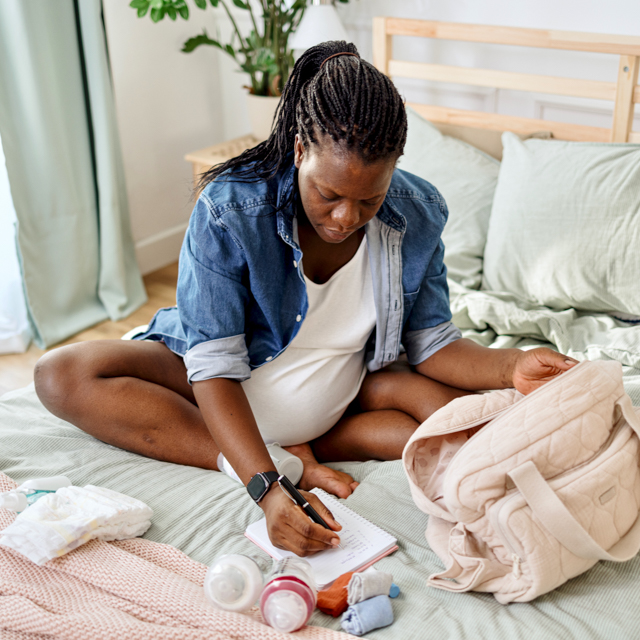Our expert outlines the most important baby-proofing steps to take now versus what can wait until later.
When preparing for a baby, most parents think about decorating a nursery, buying clothes and picking out baby names. But one of the most important things you can do for your bundle of joy is baby-proofing your home.
“There are aspects to baby-proofing that really do need to be done before you bring your baby home.”
The good news is you don’t need to do everything all at once. After all, your baby won’t be trying to climb furniture or open cabinets for several months. But there are certain things to do before your baby arrives.
“There are aspects to baby-proofing that really do need to be done before you bring your baby home,” said Dr. Hannah K. Martin, a pediatrician with Monroe Carell Jr. Children’s Hospital at Vanderbilt Primary Care. “Then, other tasks can be done around the six-month mark, before your baby becomes mobile.”
Things to do before your baby arrives
This isn’t exactly baby-specific, but the first thing Martin suggests considering is your home’s air quality.
“Babies start grabbing things and waving their arms around a lot sooner than you might think.”
“Ideally, you’d be bringing baby home to a smoke-free household,” she said. “Also, make sure your smoke alarms and carbon monoxide detectors are functional, and check them on a regular basis.”
Next, focus your attention on where your baby will sleep. Martin recommends following the ABCs of safe sleep:
- Alone. Your baby should share your room (but not your bed) for at least the first six months. Place your baby to sleep in his own crib or bassinet near where you sleep.
- Back. Always place your baby to sleep on her back. Once your baby is developmentally able to roll both ways (arms should be out of the swaddle at this point), you don’t need to keep turning your baby to her back if she rolls over in her sleep.
- Crib. Clear your baby’s bed of blankets, crib bumpers (even the mesh ones), stuffed animals and anything else that isn’t a firm mattress and snugly fitting sheet.
Martin likes to remind parents to be aware of fall risks and to never leave your baby unattended on a bed, couch or changing table. She also warns parents about the risk of scald injuries. And too-hot baths — which can be avoided with a simple bath thermometer — aren’t the only culprit.
“Babies start grabbing things and waving their arms around a lot sooner than you might think, which poses a risk when you’re trying to drink your coffee,” Martin said. “I would just recommend avoiding carrying a baby and hot liquids at the same time. And only drink hot beverages out of a sealable travel mug.”
Things to do before your baby is mobile
Next, it’s time to start baby-proofing the house in a more traditional sense. Martin recommends baby-proofing prior to your baby turning 6 months old, which is when some babies become mobile, rolling around or scooting on their belly.
“Get down to your baby’s level to see what’s there.”
She said the best strategy for figuring out what to secure, put away or lock up, is to get on the floor.
“Get down to your baby’s level to see what’s there,” Martin said. “Look for choking hazards and other dangers. A good rule of thumb is to remove anything that is small enough to fit through a toilet paper tube.”
Other baby-proofing to-dos include:
- Properly storing plastic bags and keeping the floor clear of even small pieces of plastic.
- Keeping remotes, flashlights, digital thermometers and any other device that uses a button battery out of reach.
- Placing a baby gate at the top and the bottom of the stairs.
- Using cabinet and drawer locks in the kitchen and bathrooms as well as toilet locks.
- Installing window guards, especially above the first floor.
- Avoiding baby walkers, which pose risks from falling down the stairs or toppling over.
- Securing furniture and TVs to the wall.
- Storing cleaning solutions, medications and detergents out of sight and reach.
- Getting rid of firearms in the home. If they must be kept at home, store them in a locked gun safe, unloaded and with ammunition stored separately.
- Posting or knowing where to quickly access the number to Poison Control (800-222-1222).
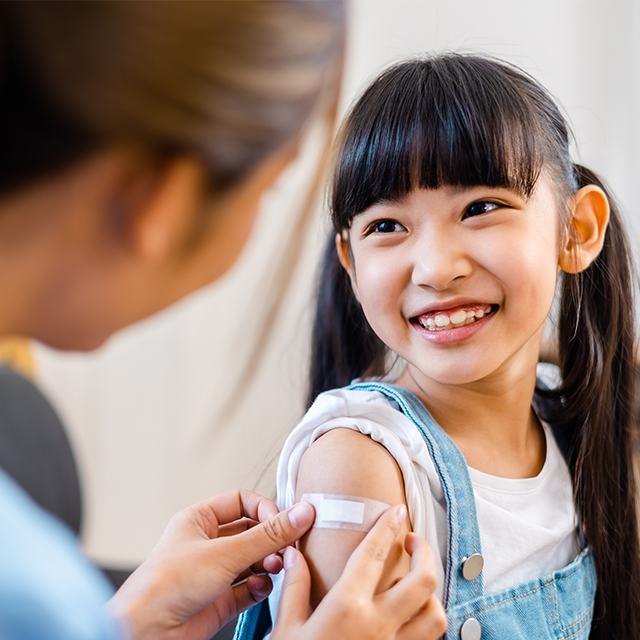
Primary Care Closer to Home
The Pediatric Primary Care program at Monroe Carell Jr. Children’s Hospital at Vanderbilt has clinics across the region to make health care personal for your family through the best possible service and compassionate care. This is a shared mission with community pediatricians, hospital partners and the Vanderbilt Health family of pediatric clinics.
